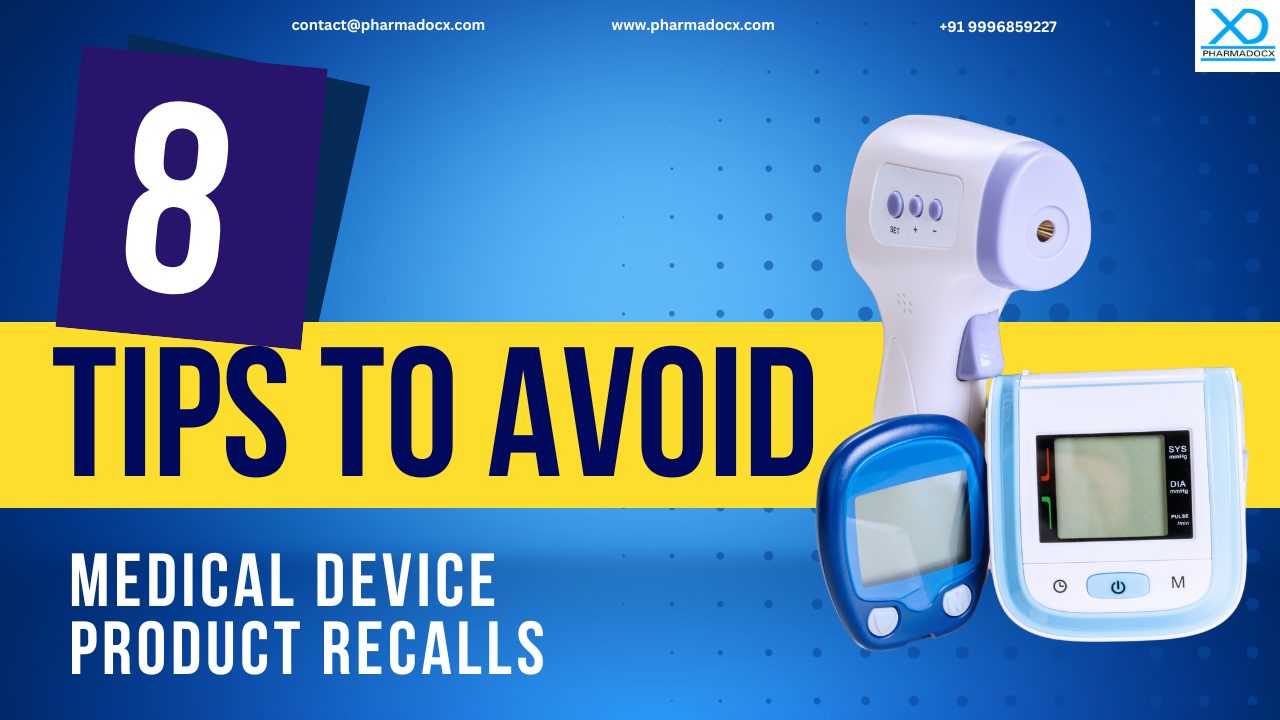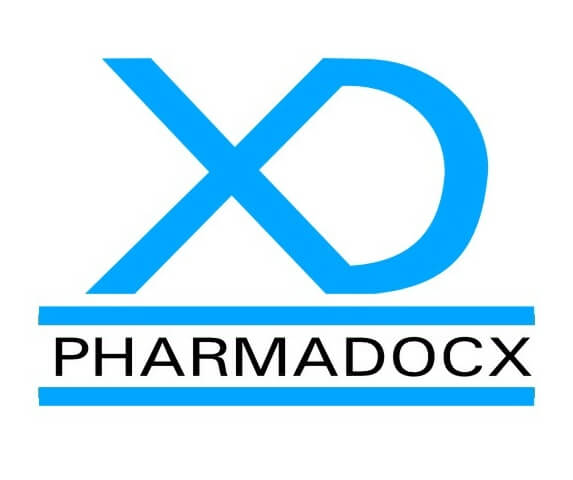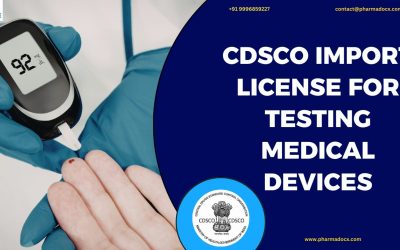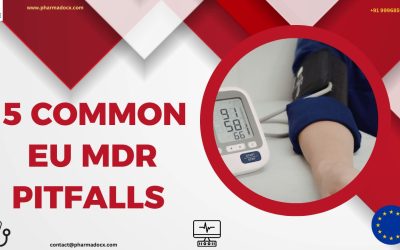Medical device product recalls are part of regulatory oversight for ensuring the best quality devices are available in the market. Getting notified by regulatory authorities for product recall will tarnish the medical device manufacturer’s image. Hence, we have provided some tips to avoid medical device recalls.
What is medical device product recall?
A medical device product recall is a corrective action taken by a manufacturer or regulatory body. Product recalls address a problem with the medical device that violates regulations and/or poses a potential health risk to users. The manufacturer removes the device from the market or takes corrective actions due to safety concerns. Corrective actions include inspecting, repairing, adjusting, or even destroying the device. Additionally, patients and healthcare facilities are notified. Medical device product recalls can be prompted by various factors. Design flaws, material defects, manufacturing defects, software malfunctions, labeling errors, and sterility issues are some of the common reasons.
Product recall always does not mean physically removing the device from the market. A recall can involve correction or removal. Correction would involve addressing the problem at the point of use or sale. Basically, it involves inspecting, repairing, relabelling, or providing new instructions. On the other hand, removal involves removing the device entirely from the market. The device is removed from the end-user, either from hospitals or clinics.
The device recall process involves identifying the issue, assessing the risk, developing a strategy. The strategy has to be communicated to the stakeholders, including patients and healthcare providers. The correction or removal, as applicable, is executed. Then, the corrective actions have to be implemented to prevent recurrence. Furthermore, healthcare professionals, patients, and the public are notified about the issues. Additionally, patients who have used the defective device are monitored to identify any adverse effects.
Furthermore, product recalls can have significant negative consequences for patients, healthcare providers, and manufacturers. It will lead to financial losses, damage to reputation, legal claims, and regulatory sanctions.
9 common causes of medical device product recalls
- Risk to health: Even if the device is not defective, it may pose a risk to patients or healthcare professionals. The devices will be recalled in this situation.
- Design defects: Inherent design flaws or weak design validation are some of the common design defects that lead to medical device product recalls. The initial design of the medical device may contain flaws that only become apparent during widespread use. Whereas, failing to adequately test the device’s functionality and performance under various conditions will lead to weak design validation. Potential issues can be missed that can later lead to recalls.
- Manufacturing errors: Errors in the manufacturing process can result in flaws in the finished product. Recalls may be caused by problems, such as inadequate equipment calibration, insufficient operator training, contamination, improper device assembly, inferior materials, and sterility issues.
- Software malfunctions: Medical devices are complex and some rely heavily on software for functionality. With increase in connected and internet-enabled devices, cybersecurity vulnerabilities can expose devices to hacking or tampering. Software defects, including coding errors, calculation inaccuracies, and compatibility problems, are becoming increasingly common causes of recalls.
- Labeling and packaging issues: Inaccurate, unclear device labels or instructions for use can lead to improper device handling or use, potentially causing harm.
- Material defects: Raw material quality will determine the final product quality. A variety of materials are used for manufacturing medical devise. These materials can have flaws that may impact the safety, efficacy, and quality of the device. Inadequate control over the quality of components and materials provided by suppliers can lead to defects in the final product.
- Supply chain disruptions and shortages: Unpredictable supply chain issues can force manufacturers to use alternative or substandard raw materials. This can potentially impact medical device quality, thereby leading to recalls.
- Staffing shortages: Insufficiently trained or inadequate staffing can lead to lapses in quality control. This can potentially lead to manufacturing defects, thereby lead to recalls.
- Regulatory and compliance issues: Medical devices that are not authorized, cleared, or approved by the relevant regulatory bodies are subject to recalls. Additionally, failure to adhere to regulatory requirements throughout the product lifecycle will lead to recalls. Moreover, incomplete or inaccurate records can violate regulatory requirements.
Consequences of device recalls
Recalls are initiated to protect patient safety and ensure medical devices meet regulatory standards. Medical device product recalls can have significant negative consequences for patients, healthcare providers, and manufacturers.
- Patient harm: When a medical device is recalled, the primary concern is risk to patient safety. Patient diagnosis, monitoring, and treatment depend on the device quality. Medical device malfunctions can lead to incorrect treatment, infections, incorrect healthcare delivery, and even detrimental outcomes.
- Loss of trust: In the event of medical device product recalls, patients, healthcare professionals, and public will lose trust in the manufacturer. Moreover, the patients’ treatment decisions may be affected. In case of product recall, patients will become reluctant to use the same devices in the future. This will impact their treatment.
- Burden on healthcare professionals and system: Product recalls put additional strain on healthcare professionals and the system. They need to determine which equipment is affected and arrange for replacements or alternative treatments. Additionally, they need to inform the patients.
- Financial loss: Recalls will result in considerable financial loss for manufacturers.
Replacements, legal fees, investigations, and reputational damage will adversely impact the manufacturer.
Who initiates medical device recalls?
Most product recalls are voluntary actions taken by the manufacturer. However, regulatory authorities can also order a recall, if the manufacturer does not do so voluntarily.
How to avoid medical device product recalls?
- Robust post-market surveillance strategy: It is vital to monitor devices once they are launched in the market. Data analysis and adverse event reporting are used to catch issues with the medical device. Furthermore, conduct thorough root cause analysis of identified issues to improve future product designs and manufacturing processes.
- Effective quality control system: Manufacturers need to have strict quality control system in place throughout the development and production stages. Extensive testing has to be performed to ensure quality, efficacy, and safety.
- Rigorous design validation: Conduct thorough tests to ensure the medical device meets all design specifications and user needs under various conditions prior to its release in the market.
- Clear communication and labeling: Clear, concise, and user-friendly labeling is essential for proper use of the device. Additionally, instructions for use, warnings, and precautions should be clearly communicated to healthcare providers and patients. Moreover, ensure all labels adhere to applicable regulations, including symbols, language translations, and formatting.
- Training sessions: Training sessions how to correctly use and maintain the device should be imparted both to healthcare professionals and patients. Additionally, patients should be properly trained on how to use the device and the potential risks of medical devices.
- Transparency: Transparency in reporting adverse events will help identify trends and prevent widespread harm.
- Foster a culture of quality and compliance: Foster a culture of continuous improvement. Feedback and learning should be used to refine processes and prevent future issues. Promote collaboration among different departments to address potential risks from multiple perspectives.
- Improved regulatory oversight: Regulatory bodies monitor and control medical devices entering its market. Stricter rules, more stringent approval procedures, and frequent inspections will help prevent defective medical devices from reaching the market.
Why are product recalls important?
- Compliance with regulatory guidelines: Medical devices that only meet safety, regulatory, and performance standards should be in the market. The rest should be recalled.
- Patient safety: Product recalls will protect patients from potentially harmful medical devices.
- Public trust: Effective recall management will help maintain public confidence in the medical device industry and the regulatory authorities.
Our team will help you launch your medical device in the market per regulatory guidelines to avoid recalls. To avoid medical device product recalls and regulatory sanctions, email at [email protected] or call/Whatsapp on 9996859227.





